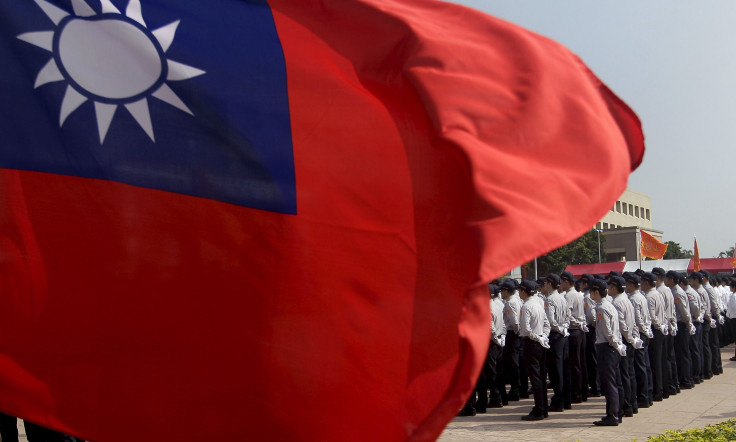Amid US-China Tensions, Defense Sales To Taiwan Angers Chinese Government

The United States government authorized eight separate defense deals with Taiwan on Wednesday, totaling $1.83 billion and drawing criticism and concern from the Chinese government. While the deal is small in comparison to the multibillion-dollar agreements recently signed by Saudi Arabia, Iraq and other Middle Eastern countries, it comes with big implications for the relationship between Washington, D.C., and Beijing.
Previous deals with Taiwan included a $5.9 billion agreement to upgrade the island’s fleet of 145 Lockheed Martin-built F-16 Fighting Falcons in 2011 and a $6 billion deal for a mix of defense equipment, including munitions for the Patriot anti-missile defense system. Both deals at the time angered China as well.
The newest U.S. deal with Taiwan includes the costs of refurbishing two former U.S. Navy Oliver Hazard Perry-class frigates, anti-air and armor missiles, defensive ship systems and 36 AAV-7 Amphibious Assault Vehicles, according to information released by the Defense Security Cooperation Agency, a U.S. government group that oversees foreign defense sales.
Before the most recent deal was completed, a spokesman for the Chinese embassy said that China "firmly opposes any arms sales from the United States to Taiwan," according to a CNBC report on Monday. "We urge the U.S. government to stop selling arms to Taiwan to avoid hurting China-U.S. relations and disturbing peaceful development of cross-strait relations."
The deal adds to the strained ties between China and the U.S., including a dispute over the islands Beijing created in the South China Sea to give it greater military power in the Pacific, control over potential energy reserves and rich fish stocks in the region. The U.S., which has not involved itself in the specific disputes over island chains in the region, has made it clear it only wants to ensure freedom of navigation in the area.
Like the previous deals, America’s relationship with China is not likely to suffer from any lasting damage. The $6 billion deal in 2010 caused China to cut off military ties with the U.S. for several months, but relations were restored quickly after that. But Taiwan may want to be careful not to damage new diplomatic ties with China. In 2014, senior officials from both countries held meetings for the first time since 1949 and bigger breakthroughs are thought to be possible in the near future, according to an Economist report from late last year.
© Copyright IBTimes 2025. All rights reserved.





















